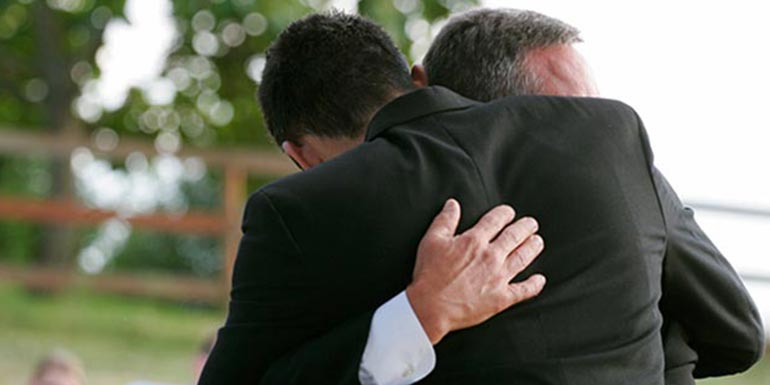Funerals around the world are being limited or banned due to the rapid spread of the coronavirus. Grieving relatives of the deceased might not always understand why they are being forced to change their traditions, but it’s important to protect the community and essential death care workers from a very easily spreadable virus.
Covid-19 is a respiratory illness and is largely spread via droplets in the air, says virologist John Lednicky. The coronavirus mainly spreads through droplets that are released by a cough, sneeze, or just simply talking. These droplets can then travel several feet and stay suspended in the air for up to an estimated 10 minutes.The droplets transport the virus to a new host via direct or indirect access to the mouth, nose, eyes of someone in close vicinity.
Funerals are coronavirus accelerators
Funerals are known for intimate contact and have already been tied to major outbreaks. Therefore many governments are putting limitations on if and how funerals can be held. At funerals there is an abundance of tears, sniffing, tissues, eye rubbing, hugging and handshakes and those are all ways for the coronavirus to spread.
Person to Person
At a funeral, family and friends commonly comfort one another through touch and close interactions. Hugging, kissing, handshaking are all common actions that spread the coronavirus, creating virus carriers out of all the attendees who merely want to consol each other.
Liquids
Even when celebrating a life well lived people cry. Tissues are used to wipe away the sniffles and tears that uncontrollably escape us. These liquids are carriers of the coronavirus. So from the very first swipe not only that tissue, but anything else including the people or surfaces around are potentially contaminated.
Surfaces
Handrails, handshakes, the podium, the deceased, the coffin, flowers, there is so much to touch at a funeral. There are so many things going on in grieving persons’ minds, doing something as basic such as grabbing a drink from a fridge after wiping away a small tear can cause a great spread. It’s not confirmed how long the virus lasts on surfaces, but scientists all agree that it is days. This puts every other family that will use the space as well as the entire staff at the home at risk for spread.
Why lockdowns and guest limitations at funerals help in preventing the coronavirus from spreading?
Isolation helps slowdown the speed of the virus spreading. Protecting loved ones and the community from being stricken with what can be a deadly virus. Funeral directors are essential and critical members of society giving closure to people during their worst moments.
Around the world funeral directors are preparing vigorously to provide dignified services that honors the departed and help families with their loss, while not continuing to spread the virus. In some situations this will mean delayed services, limited attendees, or live streaming.
